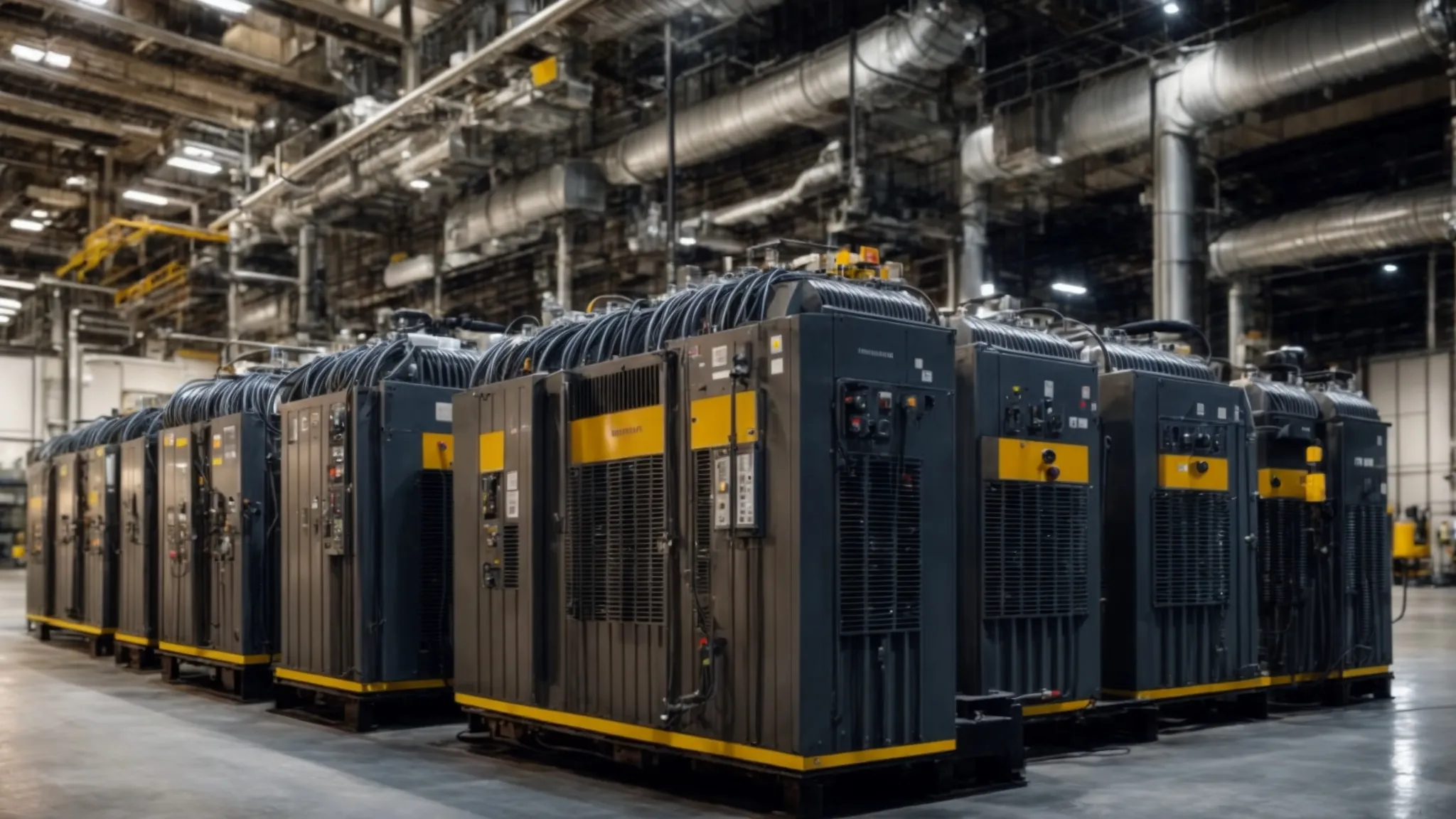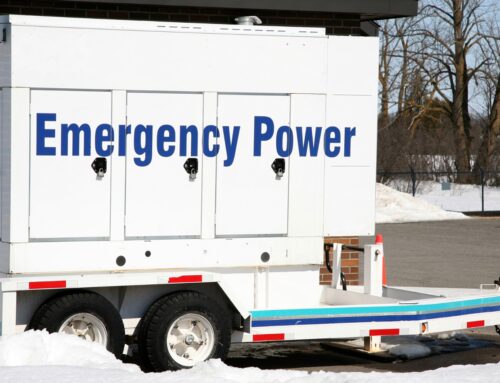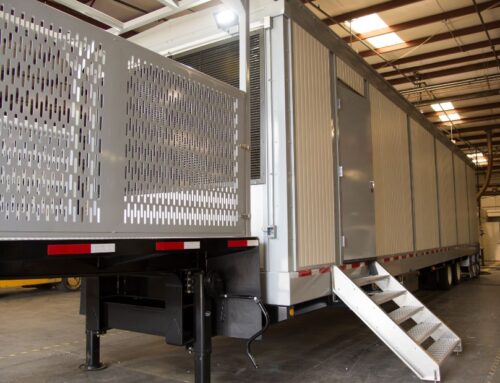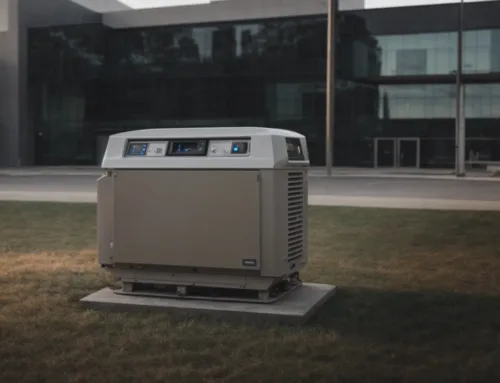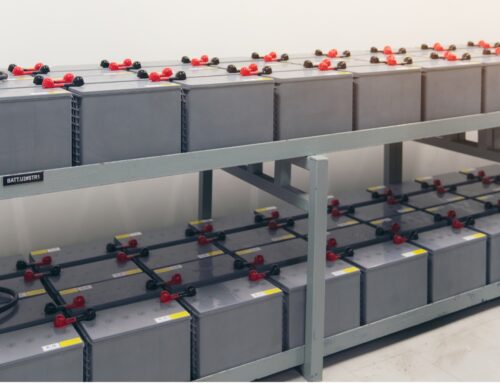Essential Guide to Critical Power Products for Businesses
The uninterrupted flow of electricity is the lifeblood of any modern business, ensuring that data centers hum with productivity and retail spaces dazzle customers with brilliance. An uninterruptible power supply can significantly benefit your business.
In Atlanta, where the hum of manufacturing and the buzz of technology coalesce, the demand for robust Uninterruptible Power Supply (UPS) systems and generators has never been greater.
Whether it’s safeguarding against data loss during a power outage or ensuring manufacturing lines never skip a beat, every aspect of a company’s operations depends on reliable electrical infrastructure.
Coupled with surge protectors and battery backups, businesses can turn unpredictability into structured assurance.
Keep reading to uncover how integrating these systems can fortify your business against the unexpected.
Uninterrupted Power Supply Rental in Atlanta: Understanding the Basics of UPS Systems for Your Business

Within the heart of bustling commercial hubs like Atlanta, businesses face a reality where every second of uptime is a premium commodity.
These UPS systems, whether anchoring data centers in Metro Atlanta or ensuring manufacturing continuity, act as the bulwark against the unexpected.
By entwining advanced technology with robust power supplies, organizations can achieve both standby power and data protection.
The journey to identifying the appropriate power systems begins with a thorough understanding of one’s own critical power requirements and proceeds with nuances in choosing between online and line-interactive UPS configurations.
These decisions pivot on factors such as voltage regulation and frequency variation, important considerations that can either fortify or compromise one’s infrastructure against electrical disruptions.
Uninterrupted Power Supply Rental in Atlanta: Identifying Your Critical Power Needs
As businesses establish themselves in dynamic environments like Atlanta, pinpointing critical power needs is not merely a suggestion but a cornerstone for sustained operations. Atlanta’s economy, vibrant with sectors from advertising to manufacturing, demands a steadfast approach to power reliability where every watt counts and the absence of it can mean a stunted workflow or even data loss.
Defining power needs to encapsulate an assessment of the electrical load, the significance of each system’s function, and the impact of unexpected downtime. A comprehensive analysis will articulate what constitutes ‘mission critical’ across disparate contexts, from data centers teeming with sensitive information to retail spaces greeting thousands of guests:
Comparing Online vs. Line-Interactive UPS Systems
When decision-makers in Atlanta’s corporate landscape evaluate UPS systems, they weigh the merits of online UPS against those of line-interactive models. The former provides seamless, zero-transition power in the face of outages, ensuring data centers and high-tech manufacturing plants are shielded from the briefest lapse in power.
Conversely, line-interactive UPS systems, suited for environments like small-scale retail or office settings, offer a more cost-effective solution. They balance adequate protection with efficiency, mitigating common power anomalies through a multi-stage defense mechanism that includes a voltage regulator and an emergency power system:
Now that we’ve navigated the essential terrain of UPS systems, let’s illuminate the critical role of generators. A steadfast generator backup can be the linchpin of a robust business continuity strategy.
The Importance of Generator Backup in Business Continuity Plans
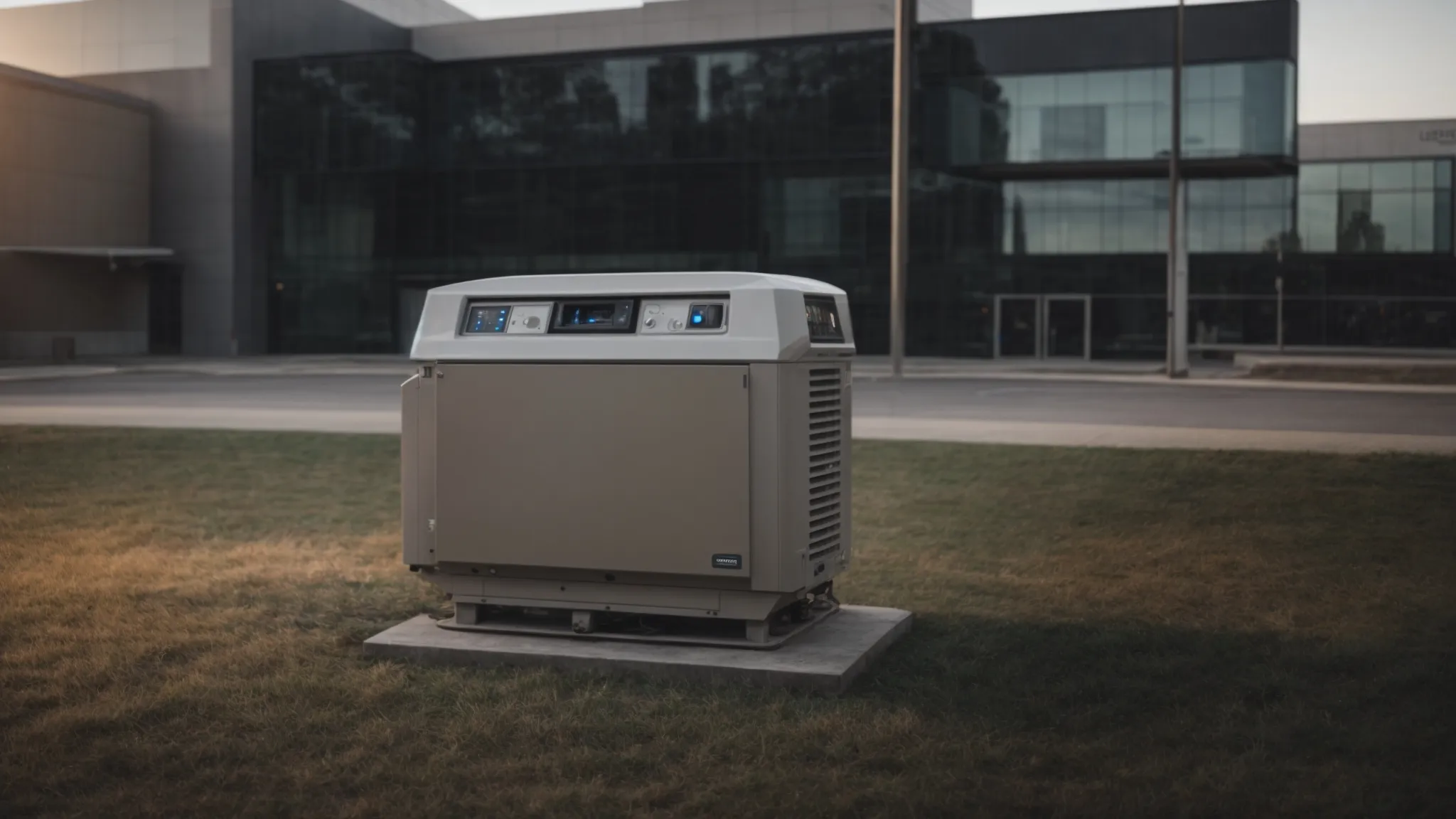
In the realm of ensuring uninterrupted operations, the role of generators as a component of a comprehensive emergency power system cannot be understated.
Serving as a steadfast bulwark when the primary power supply succumbs to outages, generators are pivotal in maintaining the pulse of business activities.
This significance makes it imperative for organizations to judiciously assess the myriad generator options, scrutinizing fuel types and capacities that align with their specific needs.
Simultaneously, embracing a regimented maintenance schedule is crucial for sustaining generator reliability, which in turn fortifies business continuity strategies—thus ensuring that when emergencies arise, the transition to backup power is as smooth as the engine that drives it.
Evaluating Fuel Types and Generator Capacities
When businesses in Atlanta and across Georgia plan for the unforeseen, evaluating generator fuel types becomes a pivotal step in their emergency preparedness. Diesel, natural gas, and propane stand as popular choices, each carrying distinct advantages in terms of storage, accessibility, and response time.
Generator capacities equally merit careful consideration: a retail space in the Perimeter Center may require a smaller kilowatt (kW) unit compared to a sprawling data center along the Downtown Connector that demands a higher wattage to maintain its mission-critical systems during a power outage. Understanding the energy requirements of each operational component ensures a tailored and efficient backup power solution:
Implementing a Maintenance Schedule for Reliability
Regularly maintaining backup generators undergirds a business’s resilience to power blackouts. A maintenance schedule is the backbone that supports these systems, encompassing routine checks and repairs that ensure a state of perpetual readiness.
Such diligence mitigates the risk of equipment failure when it is most needed, reinforcing a company’s infrastructure against unforeseen electrical anomalies. Adherence to a well-crafted maintenance plan translates into reliable standby power, providing peace of mind and continuity for critical operations.
As we acknowledge the vital role of generators in ensuring business continuity, it’s equally imperative to consider the front line of defense for your electronics. Surge protectors stand guard, shielding your valuable business equipment from unpredictable voltage spikes.
How Surge Protectors Safeguard Your Business Equipment

In the landscape of contemporary business, where every device is a node in the web of data exchange and operational efficiency, surge protectors emerge as silent sentinels guarding the technological frontiers.
Early adaptation of surge protection measures ensures the longevity of critical equipment, ranging from computers to intricate manufacturing systems vulnerable to voltage spikes.
As we scrutinize the various types of surge protectors available on the market, we will explore their specific applications, demonstrating how they blend into the electrical infrastructure of enterprises.
Coupled with that, we establish best practices for deploying these devices in areas most susceptible to power surges, crafting a shielded environment where business assets remain secure against the caprice of unregulated energy spikes.
Uninterrupted Power Supply Rental in Atlanta: Types of Surge Protectors and Their Applications
Within the varied commercial and industrial landscapes of spaces like Atlanta, surge protectors cater to a broad range of applications. First, the fundamental strip-based surge protector provides basic defense for home offices and retail points, quietly defending a plethora of devices from the ubiquitous fluctuations of electric power.
For more complex systems within manufacturing facilities or data centers, surge protection extends into sophisticated, integrated solutions. Devices like din rail surge protectors deliver nuanced, high-capacity defense, securing sensitive electrical engineering achievements and ensuring that mission-critical equipment navigates electrical tumult with unwavering efficiency.
Best Practices for Deployment in High-Risk Areas
Deploying surge protectors in high-risk areas requires strategic planning to ensure maximum efficacy. Businesses must prioritize locations where equipment is most vulnerable, such as near the main power entry points or at workstations with numerous interconnected devices, always grounding the surge protector for enhanced safety.
Making sure that surge protection is layered is also helpful. Putting together point-of-use devices with service entrance protectors makes a full barrier against transient voltages, which stops damaging electrical surges from getting into the core of technology infrastructure.
Shielding your assets extends beyond the immediate defense surge protectors provide. Embrace the resilience that battery backup solutions offer to ensure your operations never skip a beat.
Leveraging Battery Backup Solutions for Seamless Operations
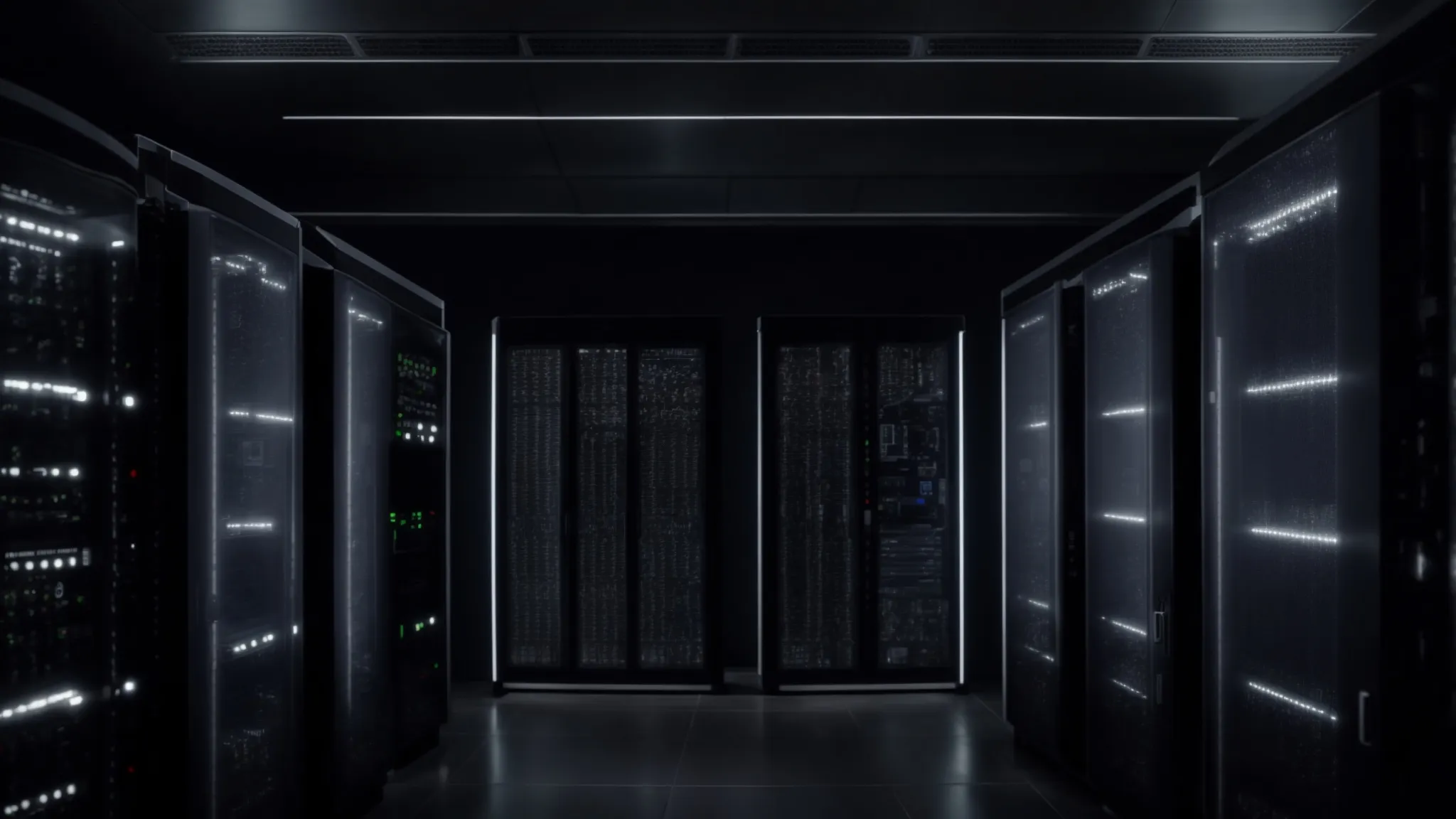
In the unforgiving landscape of business continuity, battery backup solutions offer a crux of reassurance, adeptly bridging the gap during power discrepancies.
Atlanta’s enterprises, from bustling tech startups to sprawling data centers, recognize that seamless operations hinge on the sustained health of these battery systems.
Assessing battery life and implementing judicious replacement strategies become essential practices, ensuring these unsung heroes of the power supply chain are primed for action when seconds count.
As businesses ingrain battery backups into their existing power infrastructure, the seamless integration of these systems emerges as a testament to ingenuity—transforming a silent standby into a vibrant, uninterrupted force.
Uninterrupted Power Supply Rental in Atlanta: Assessing Battery Life and Replacement Strategies
Meticulous monitoring of battery backups stands as the fulcrum upon which Atlanta’s business continuity pivots; thus, savvy enterprises engage in regular assessment of their uninterruptible power supply’s battery condition. Through scheduled voltage and load tests, they decipher remaining battery life, preempting capacity erosion and ensuring readiness for transition during power disturbances.
Strategic replacement strategies are pivotal in the orchestration of seamless operations; businesses optimize performance by earmarking batteries nearing the end of their service life for timely updating. By maintaining a proactive stance, they uphold an uninterrupted power supply, allowing mission-critical tasks within data centers and customer-facing platforms to persevere in the face of electrical adversity.
Integrating Battery Backups With Existing Power Infrastructure
Integrating battery backups with an organization’s power infrastructure is akin to crafting a symphony where each component plays in harmony. For businesses in Atlanta, this means aligning battery technology with the nuances of their existing electrical systems, ensuring a seamless transition during power fluctuations that might otherwise disrupt critical operations.
Businesses often partner with systems integrators to design a seamless interface between their mission-critical devices and the battery backup solutions. This turnkey approach not only preserves operational integrity during outages but also maximizes the lifespan of the battery units through efficient charging and discharging cycles, tailored to the unique energy demands of the company’s infrastructure.
While battery backups secure operations against power disruptions, the quest for sustainable energy sources propels businesses forward. Solar power emerges as a shining beacon, promising a cleaner, greener approach to harnessing electricity for commercial endeavors.
Solar Energy as a Sustainable Power Solution for Businesses

As businesses in Atlanta and beyond strive for sustainability, solar energy presents itself as a progressive power solution that’s both eco-friendly and cost-effective. Harnessing Georgia’s abundant sunshine, companies are turning their rooftops into power-generating assets, anchoring their role in the green energy movement and reducing their carbon footprint.
The integration of solar power into the energy portfolio of a business offers a hedge against volatile energy prices. It provides a long-term strategy for energy independence, allowing firms to reallocate savings from reduced utility bills into other critical areas of their operations.
Adopting solar technologies not only reflects a commitment to environmental stewardship but also enhances a company’s brand image in the marketplace. Conscious consumers are increasingly drawn to businesses that demonstrate a tangible effort in reducing their ecological impact, making solar investment a smart choice for public relations and customer retention.
Solar energy systems demonstrate remarkable versatility across various business sectors, whether for supplementing power needs in data centers or driving manufacturing processes. The scalability of solar solutions ensures that from small entrepreneurial ventures to expansive corporate establishments, any business can pursue a cleaner, renewable energy pathway.
Solar energy’s potential shines bright, revolutionizing how businesses harness power. Let’s cast a final beam of light on the key takeaways.

Understanding critical power requirements and implementing the right products is essential for any business seeking to ensure continuity and safeguard against power fluctuations. Atlanta’s enterprises have the unique advantage of accessing state-of-the-art technology and expertise in power management solutions, enabling them to maintain operations without interruption, no matter the challenge.
From the intricacies of a UPS system to the robustness of generator power, companies can construct a bespoke power protection strategy that aligns with their operational needs. This approach is not just about maintaining an uninterrupted power supply but about crafting an infrastructure that can withstand and quickly recover from any power-related disruptions.
Businesses that proactively adopt surge protectors and battery backup solutions are sending a clear signal to their clientele and stakeholders that they value reliability and are prepared for any eventuality. It reflects an understanding that uninterrupted service equates to unwavering commitment to customer satisfaction and operational excellence.
Atlanta’s economic landscape provides fertile ground for innovation in electrical services and power systems, offering organizations a competitive edge through energy efficiency and sustainability. Embracing these critical power products positions businesses not only for success in their current operations but also paves the way for growth and resilience in an ever-evolving marketplace.
Frequently Asked Questions
What is a UPS system and how does it protect your business?
A UPS, or uninterruptible power supply, is an essential component that provides immediate power backup, preventing data loss and hardware damage during sudden outages. This versatile system not only offers protection from power interruptions but also conditions incoming electricity to ward off the damaging effects of surges and voltage fluctuations. For businesses considering the integration of this vital equipment, understanding the benefits of an uninterruptible power supply can be particularly illuminating.
Why is a generator crucial for a company’s emergency response plan?
A generator stands as a cornerstone for any company’s emergency response plan, ensuring ongoing operations by providing standby power during outages. Its presence is pivotal in maintaining critical systems and preventing data loss that can occur when electrical supply is disrupted.
How do surge protectors prevent damage to office equipment?
Surge protectors safeguard office equipment by diverting excess voltage away from devices during power spikes. This protection mechanism helps to prevent electrical malfunctions and extends the lifespan of sensitive technology.
In what ways can battery backups enhance business operations?
Battery backups ensure continuous operations during power outages, protecting against data loss and downtime. They also help maintain the integrity of mission-critical systems, preserving customer trust and avoiding costly disruptions.
Can solar power be an effective energy solution for my business?
Solar power has proven itself to be a viable energy solution for many businesses, offering a sustainable alternative with potential cost savings on energy bills. The effectiveness of solar energy can vary based on several factors, including geographic location, energy requirements, and the available space for solar panel installation.
The adoption of critical power products, from UPS systems to solar energy solutions, stands crucial for businesses in securing operational continuity and mitigating power disruptions.
Atlanta companies integrating surge protectors and battery backups showcase a commitment to reliability and customer satisfaction.
Forward-thinking businesses that invest in these essential power management tools gain a competitive advantage, ensuring smooth functioning amid potential power-related challenges.
Ultimately, a strategic approach to critical power needs fortifies a business’s infrastructure for resilient growth in today’s electrically dependent economy.
Air Power Consultants is your go-to partner for securing top-notch UPS (Uninterruptible Power Supply) rental solutions in Atlanta, designed to keep your business operational through any emergency. Our inventory spans stand-alone and UPS trailer mounted rental in Atlanta, ensuring a perfect fit for any requirement your business might face, from severe weather conditions to power outages, and even for dependable power sources for outdoor projects.. This includes prompt delivery and pickup across the Atlanta metropolitan area and adaptable rental agreements.

We recognize the critical importance of having a reliable uninterrupted power supply rental in Atlanta, particularly for businesses that provide essential services. That’s why Air Power Consultants offers UPS rental in Atlanta. We can help you choose which UPS system rental in Atlanta fits your business, our team of experts can provide the information you need to make an informed decision. Making sure your Atlanta business has the uninterruptible power it needs is our top priority. For personalized consultation and to explore our UPS rental solutions in Atlanta, get in touch with us at Air Power Consultants. You can reach us at 913-894-0044 or via email at info@apcikc.com.

